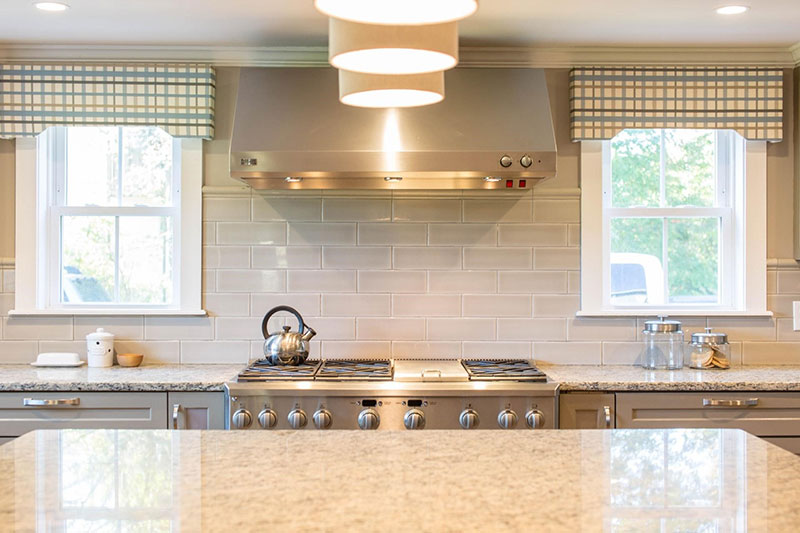One of the most notable ways to upgrade your kitchen is to upgrade your countertops. Depending on how “all in” you want to go, you can opt for either countertop resurfacing or kitchen countertop replacement. Resurfacing is a good option if your existing countertops are relatively sturdy, but have cosmetic issues that are not fitting in with your kitchen. Perhaps they are the wrong color, or there may be some superficial scratches, or perhaps you have your heart set on different materials. At Angi, formerly known as Angie’s List, we have access to a wide range of countertop contractors in your area that can help you with your project as well as provide tips to get the look and feel you want while keeping your budget in mind.
What Will New Kitchen Countertops Cost?
The cost of your kitchen countertop replacement depends on various factors, such as your geographic location, whether you are replacing or resurfacing, and the materials you choose. A variety of materials can be used including granite, soapstone, marble, slate, acrylic, laminate, and more. In general, natural stones, like granite and marble are more expensive than engineered or synthetic materials. If price is an issue, there may be a way to get a similar effect at a lower price.
Most kitchen countertops cost between $2,000-$4,000, with some bare-bones budgets going for several hundred dollars, and more high-quality materials costing near $8,000. Pricing is by the square foot, between $10-$70. While many have tried to install countertops, or resurface their kitchen counters themselves, this is a job that takes a high level of skill and does not have a lot of room for error. In order to properly prepare your base, make sure everything stays even, and that nothing gets cracked or chipped in the process can be a big challenge. The location makes a difference because there is a difference in labor costs and availability of materials. A job that costs around $1600 in Charlotte, NC can easily cost about $1000 more in Seattle.
The Material You Choose Makes a Big Difference
Your favorite home improvement show may be all about promoting marble and granite, but there are a lot more choices available and they come at many different price points. Granite is popular because of its durability, and can be found in whole slabs which can run up to $140 per square foot or can be prefabricated and cost $35 or less per square foot. Marble is also durable and varies significantly in quality. For good quality marble expect to pay $25 or more per square foot.
Quartz and Quartzite are also both popular choices that vary a lot in price. Quartzite is a natural stone material and needs more maintenance and regular sealing. It is also generally more expensive than quartz costing up to $75 per square foot. Quartz in an engineered stone that includes resin, which keeps it from needing to be resealed.
Acrylic and laminate are both options that many look to when they are on a budget. Many acrylic countertops are made to resemble granite and other natural stones. It is also a great option for active kitchens due to its durability and how easy it is to clean. Prices start as low as $13 per square foot. Laminate counters are affordable, as low as $8 per square foot, but they can be more vulnerable than other choices since they can scratch and chip easily and may be sensitive to heat.
For a rustic option, many are choosing wood countertops, which run between $18-$38 per square foot. Wood requires maintenance and must be resealed monthly to stay looking good.
Those with a more industrial flair might try either stainless steel or concrete. While stainless steel is prone to scratching, it is otherwise very durable. Prices do run a bit on the higher side, starting at $60 per square foot.
Concrete countertops start as a liquid, so they can be dyed to whatever look you want. Since they are porous, they need a quality sealant to keep them from chipping and cracking. They start at around $50 per square foot.
Regardless of your plan for your kitchen, your choice of countertops can be a very involved decision. With the right professional to guide you, you can make a choice that serves your budget and how you plan to use your kitchen. While some try to brave DIY installation, hiring a local installer with the help of Angi is usually the better choice. Dealing with the mere bulk of new counters, as well as the complex decision on the best materials to use makes having the help well worth the extra expense in order to end up with a quality, professional job in the end.
